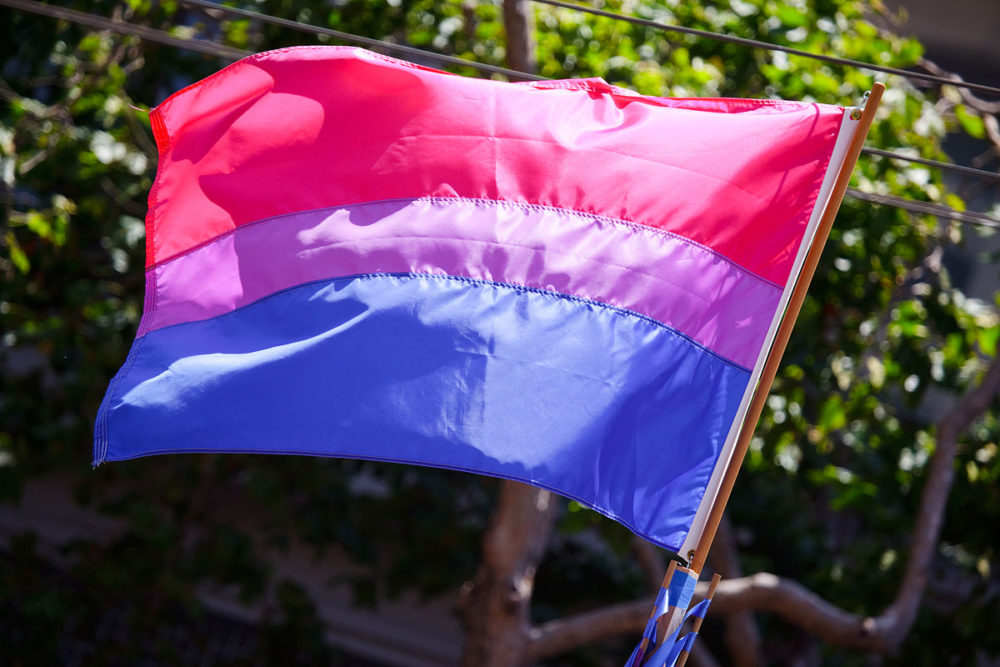
Coming out as bisexual means encountering a lot of incorrect assumptions.
You don’t have to understand it to believe in it (but you should also understand it)
This past Wednesday, September 23, was Bisexuality Awareness Day. It seems timely, then, to address some of the misconceptions and stereotypes bisexual individuals have to endure.
For those who might not know, bisexuality involves romantic or sexual attraction to individuals of more than one sex and/or more than one gender. This attraction to individuals of different sex and gender identities is not always to the same degree, can fluctuate over time and can involve differing degrees of interest. Not so unlike how attraction works for heterosexuals as well (crazy, right?).
Sometimes confused with pansexuality, which involves attraction to individuals regardless of their gender, bisexuals often see an individual’s sex and/or gender as integral to their attraction towards them.
By definition, this seems pretty straightforward; and yet, bisexuals face an incredible amount of cynicism and doubt, both from straight and cisgender individuals, but also from members of the LGBTQ+ community as well. So much so, there’s a term for it, biphobia.
Biphobia highlights the prejudice, hatred, or discrimination targeted at bisexuals. More commonly though, biphobia is seen in the way that bisexuality is might light of, joked about, discredited and stereotyped in ways that attempt to invalidate it as an identity.
People often struggle to understand bisexuality because it defies our understanding of what sexuality should be, an either/or dichotomy: you are attracted to men or women, you are straight or gay, you feel attraction or you don’t.
Bisexuality though does not work with an either/or mentality, but instead, works with one that says sexuality can be defined in terms of both/and. The definition for bisexuality might be straightforward, but for many people, reframing how they think of sexuality is difficult. However, that doesn’t mean it’s invalid.
According to the Gay, Lesbian, and Straight Education Network, bisexuals are far more likely to not disclose their sexual identity than are their gay or lesbian counterparts. Oftentimes, bisexuals feel it easier to ‘play’ the role of being either straight or gay, to fit within the zone of comfort of other people’s definitions of sexuality.
When bisexuals do come out, they are often accused of being ‘confused,’ of either being straight or gay and ‘playing’ at being somewhere in between. It can be devastating to be undermined in this way, especially when you consider how much courage it takes to come out in the first place.
Within the LGBTQ+ community, bisexuals often face the issue of being ‘too straight’ to find solidarity with other identity-groups, but are also ‘too gay’ to feel at home within heterosexual ones. Bisexuals are ostracized by this and left without a solid group with whom to identify.
Add to this countless stereotypes bisexuals have to endure and it’s no surprise that, second to transgender individuals, bisexuals face the second highest rate of suicide in the LGBTQ+ community. Bisexuals are both socially and individually accused of being overly promiscuous, just wanting to have sex with everyone.
When I first came out to one of my friends as bisexual, she asked me, “Oh, does that mean you’re attracted to me?” I then asked if she was attracted to every single male roaming the planet. She answered with a disgusted, “No,” and still managed to miss the point.
Relationships and dating can be extremely difficult territory for bisexuals to navigate. Oftentimes, bisexuals are fetishized for their sexuality. Or, from those on the outside viewing their relationships, they experience bisexual erasure. Meaning, when a bisexual person is in a heterosexual relationship they are labeled ‘straight’ and when they are in a homosexual relationship they are labeled ‘gay’.
Bisexuals often feel pressure to ‘prove’ their sexuality. They may feel the need to enter into same- or opposite-sex relationships to show that they are, indeed, bisexual.
Additionally, certain groups of bisexuals receive more judgment than others. Psychology Today found that bisexual men often face more barriers to dating, where straight women find them less attractive or immasculate because of their sexuality; whereas straight men show no bias towards bisexual women.
All of this just goes to show that bisexuals would, undoubtedly, have a much easier time if they were anything but a bisexual. However, they, like everyone else, have no choice in the matter. So when someone comes out as bisexual, respect that. Respect the courage it takes to hold an identity many people don’t believe, and that even those who do believe, often don’t understand. Just in general, respect when people tell you who they are, all you have to do is listen and acknowledge what they’re feeling is real.
